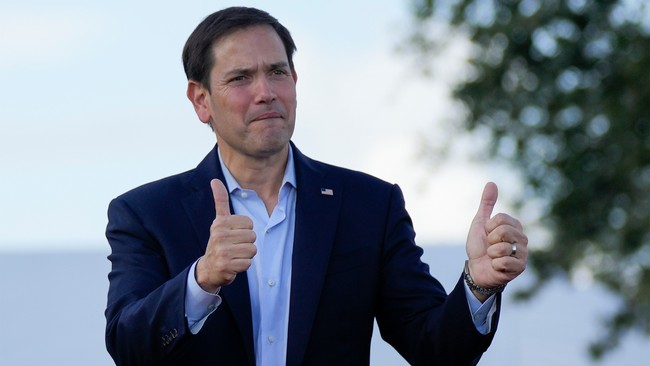EU Plans Tariff Retaliation Amidst US Trade War
The European Union is preparing countermeasures against US tariffs imposed by Donald Trump's administration. Learn how these tariffs could impact global trade and economic relations.
Published April 05, 2025 - 00:04am

Image recovered from arabnews.com
In a move that has escalated global tensions, the European Union is preparing to implement countermeasures against newly announced tariffs by the United States. European Commission President Ursula von der Leyen expressed her concerns about the economic implications of the US tariffs, which President Donald Trump described as universal and applicable to 185 countries worldwide. These tariffs have particularly targeted the European Union, among other regions, with an imposition of a 20% tariff rate, a significant increase from the 10% standard applied to most other nations.
The EU, under von der Leyen's leadership, is finalizing a comprehensive package of countermeasures aimed at safeguarding European interests. Notably, the EU plans to impose retaliatory tariffs on up to €26 billion worth of US goods if ongoing negotiations with Washington fail to produce a diplomatic solution. This retaliatory strategy highlights the EU's resolve to protect its businesses and consumers amidst a rapidly escalating trade conflict.
Von der Leyen addressed an audience in Samarkand, Uzbekistan, ahead of an EU-Central Asia summit, reiterating the far-reaching consequences of the US tariffs on the global economy, including potential price increases in consumer essentials such as groceries, medications, and transport. The European leader also mentioned potential disruptions for businesses around the world, signaling the scale of impact that international trade tensions could have.
Moreover, von der Leyen stressed that this situation is not beyond repair and expressed openness to negotiating trade rules reforms, which both the US and EU acknowledge have been subjected to unfair practices by various global trade partners. While the EU did not initiate the trade conflict, it has made it clear that it possesses not only the capability but also the readiness to impose 'firm countermeasures' should they become necessary.
Meanwhile, reactions to Trump's tariffs have cast a shadow over worldwide economic prospects, raising concerns about inflation and slowed economic growth not only in the US but potentially worldwide. The tariffs' introduction is perceived by many as exacerbating protectionist trends and generating chaos in established trade relations, further igniting global tensions.
Across Europe, from Belgium to Croatia, political leaders and commentators have been vocal in their criticism of the US tariffs. The sentiment was echoed by numerous EU representatives who have underscored the importance of finding a constructive resolution, advocating that the deeply intertwined economic relationship between the EU and the US remains one of the world's largest and most mutually beneficial. Failure to reach a consensus threatens not just European economies but could lead to a detrimental ripple effect impacting developing nations already facing challenges from high tariffs.
Complementing von der Leyen's stance, communications from central Asian countries have also unveiled stark concerns about the tariffs' impact. Notably, several former Soviet states face varying levels of tariffs, with some countries experiencing as high as 31% on imports. The disparities underscore a complex geopolitical climate that transcends economic considerations and includes broader implications for international alliances and diplomacy.
In conclusion, as the tit-for-tat trade dispute unfolds, global stakeholders are intently watching for developments that could define the future of international trade. The EU's preparedness to retaliate while simultaneously exploring avenues for dialogue marks a crucial juncture in this high-stakes economic confrontation. The outcome of these developments will likely have lasting consequences for global economic structures and relationships between major economic powers.







